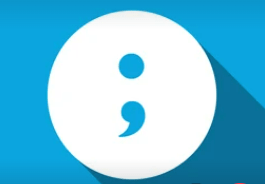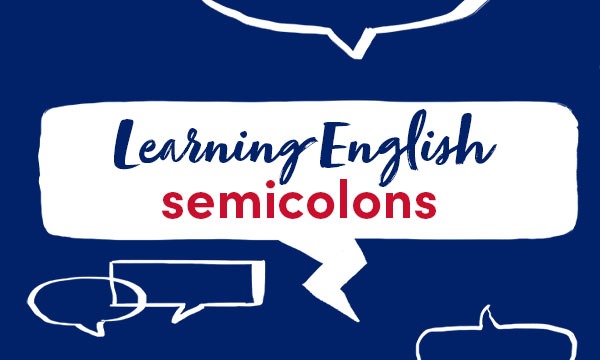
The semicolon is used to mark a break between two main clauses when there is a balance or a contrast between the clauses. A useful test to work out when to use a semicolon is to ask yourself whether the two clauses could be written instead as separate sentences. If the answer is ‘yes’, then you can use a semicolon.
Compare:
The engine roared into life. The propellers began to turn. The plane taxied down the runway ready for take-off.
with:
The engine roared into life; the propellers began to turn; the plane taxied down the runway ready for take-off.
Note that it is quite acceptable to use a full stop in these cases, but a semicolon is preferable if you wish to convey the sense of a link or continuity between the clauses in your writing.
I’m not that interested in jazz; I prefer classical music.
He knew everything about me; I had never even heard of him.
A semicolon is also used to separate items in a list, especially if the listed items are phrases or clauses, which may already contain commas.
The holiday was a disaster: the flight was four hours late; the hotel, which was described as ‘luxury’, was dirty; and it rained for the whole fortnight.
For further information on English Grammar, visit: https://grammar.collinsdictionary.com/easy-learning
Come back for other blogs on using English in everyday situations:
https://blog.collinsdictionary.com/language-learners/learning-english
All opinions expressed on this blog are those of the individual writers, and do not necessarily reflect the opinions or policies of Collins, or its parent company, HarperCollins.



